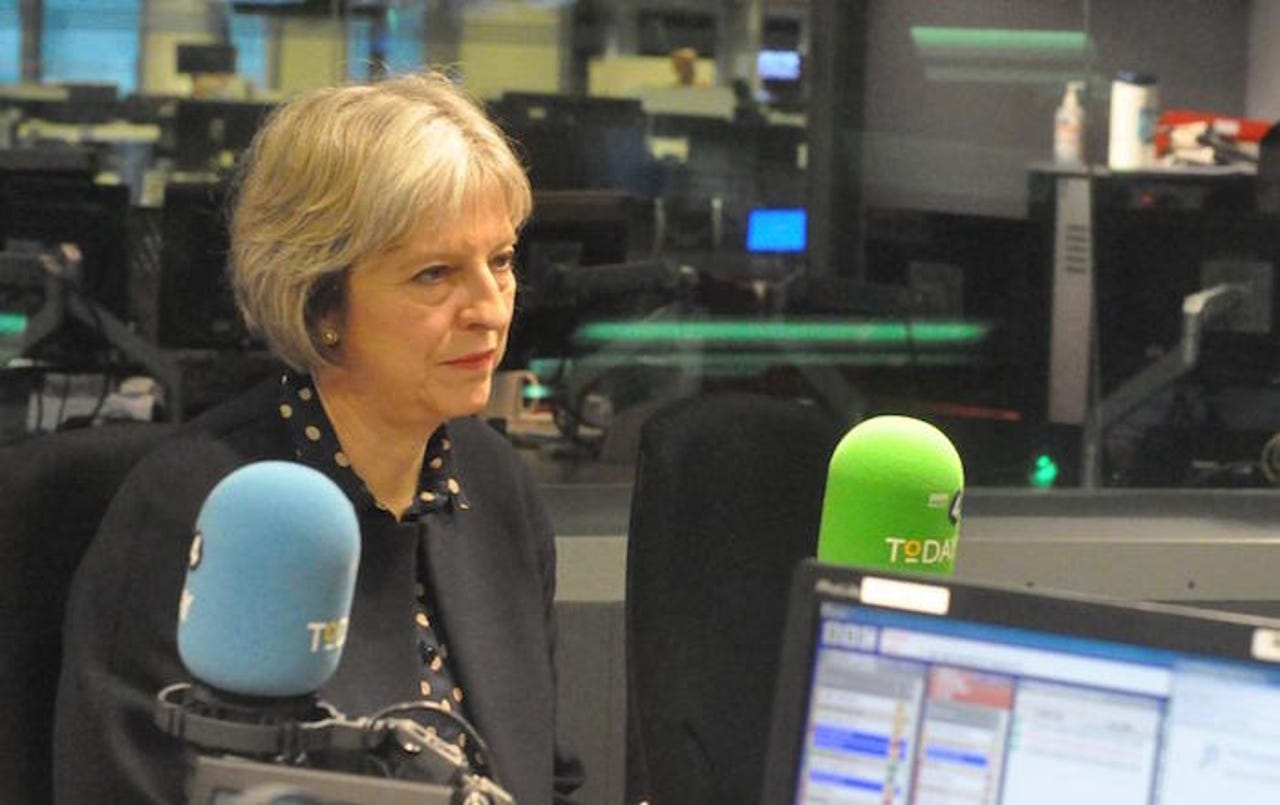UK refuses to reveal how many lawmakers are under surveillance


The UK's home secretary Theresa May has refused to confirm how many fellow lawmakers have had their communications intercepted by British intelligence agencies.
In a brief confrontation in the parliament's House of Commons on Monday, fellow Conservative Peter Bone MP said May's refusal to answer was an "indication" that some members of parliament (MPs) have been subject to surveillance by UK intelligence agencies.
The emergency session follows a ruling last week that determined the so-called Wilson Doctrine, a promise made by former prime minister Harold Wilson that said members of parliament won't have their mail opened or phones tapped by the intelligence agencies without his direct knowledge, was no longer valid.
May said the doctrine "still applies," but confirmed that devolved members of parliament in Scotland (MSPs), Wales, and Northern Ireland, as well as members of the European Parliament (MEPs), are not protected by the doctrine.
Joanna Cherry MP, a Scottish member of parliament, criticized May's response, asking why the government thinks the Scottish parliament is "less deserving" of the doctrine's protection. She added that the home secretary's "caveated" comments about the doctrine in 2014 suggested the doctrine may have been partly suspended around the time of the Scottish national independence referendum, a national vote that saw Scotland remain as part of the United Kingdom.
Caroline Lucas MP, who brought the case under debate to the Investigatory Powers Tribunal, said lawmakers had been "misled" over the level of protections MPs are afforded under the doctrine.
Doctrine 'cannot work sensibly'
Until last week, the doctrine was kept in force by every prime minister since Wilson, but was expanded in 2002 when former prime minister Tony Blair said the doctrine applied to "all forms" of communications.
But last week, James Eadie QC told the Investigatory Powers Tribunal (IPT), which hears complaints against the intelligence agencies, that the doctrine "simply cannot work sensibly" in an age of bulk data collection and mass surveillance, and did not have the force or weight of the law.
The IPT said that the UK's spy agencies MI5, MI6, and GCHQ -- the eavesdropping agency whose activities were detailed in an extensive range of documents leaked by whistleblower Edward Snowden -- have their own separate policies that do not require for the prime minister to be informed where parliamentary communications were collected.
MPs were quick to respond with anger, amid concerns that emails sent to and from parliamentary offices may have been collected or spied on.
In a letter to the prime minister David Cameron, Scottish first minister Nicola Sturgeon asked for clarification, arguing "the confidentiality of communications between parliamentarians and their constituents is of the utmost importance," according to The Guardian.
MPs not 'above the law'
Many of the lawmakers on Monday argued that the need to protect their communications from surveillance was to protect whistleblowers, and not about driving a wedge of privilege between them and the public.
David Davis MP, a Conservative politician known for being pro-civil liberties, and who has almost always voted against requiring the mass retention of information about communications, said MPs need the doctrine's protections against government surveillance because their job is to "hold the government to account."
He argued that MPs often "deal with campaigners, journalists, whistleblowers, and our own constituents" in bringing to light wrongdoing disclosed by members of the public, including police and public-sector workers, and employees of big corporations.
Chris Bryant MP, who called for the emergency debate following last week's ruling, argued that MPs "cannot ever be above the law," a sentiment echoed by others, including the home secretary.
Bryant, a Labour MP with a long record of voting in favor of data retention and communications collection legislation, accused May of withholding any public statement about a change in the doctrine's standing because it wasn't "compatible" with the current state of national security.
Davis, in agreement with Lucas and others, said the the doctrine must be enshrined into law.
May will "soon" introduce the so-called "snoopers' charter," first mentioned earlier this year in the Queen's annual speech.
Known as the Investigatory Powers Bill, the Conservative government said the draft law would give authorities "tools" to keep the public safe by addressing gaps in existing intelligence gathering.
Dominic Grieve MP, chair of the Security and Intelligence Committee which oversees the intelligence agencies, said the committee will examine how parliamentarians will be treated under the new draft bill.